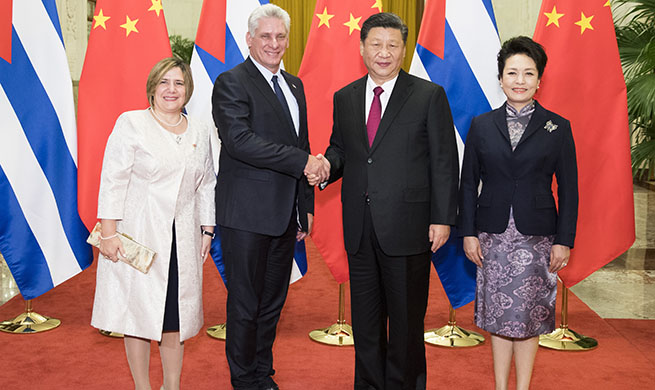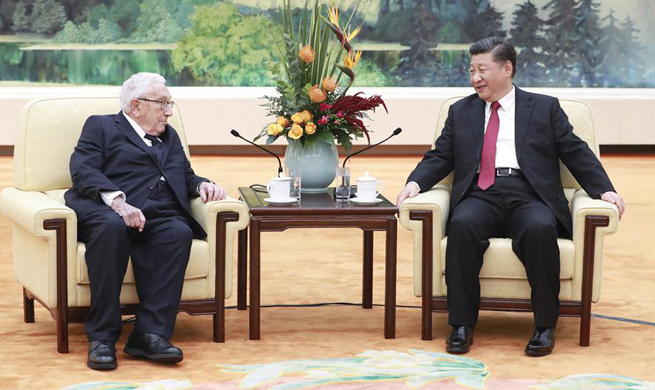BERLIN, Nov. 9 (Xinhua) -- The ruling "grand coalition" in Germany has finalized negotiations over a federal budget for the year 2019 on Friday, which will witness a marked increase in national defense expenditure.
According to spending plans presented by the budgetary committee of the federal parliament (Bundestag), funding for the ministry of defense will rise from 38.5 billion euros (43.6 billion U.S. dollars) in 2018 to 43.2 billion euros in the coming year. The boost to the finances of Germany's armed forces (Bundeswehr) is bigger than previously anticipated and partially reflects a decision to acquire new naval vessels and transport helicopters.
The allegedly poor state of equipment used by German soldiers has provoked a long-standing public debate in the country and led to repeated clashes between finance minister Olaf Scholz and defense minister Ursula von der Leyen over what constitutes an appropriate level of military expenditure. On an international level, U.S. president Donald Trump frequently criticizes Berlin for failing to meet the official annual defense spending target of two percent of gross domestic product (GDP) set by the North Atlantic Treaty Organization (NATO).
The federal government's financial contributions to foreign developmental aid are now set to increase as well in 2019 from 9.4 billion euros to 10.2 billion euros.
As already held true in 2018, labor and social policy spending will still account for the bulk of government spending with 145.3 billion euros (plus 6.1 billion euros) in earmarked funding for 2019. Germans can also look forward to some fiscal relief in the shape of higher child benefit payments and measures to offset effects of the so-called "cold progression" when wage gains match inflation but otherwise result in weaker purchasing power after pushing taxpayers into a higher income bracket.
Overall, the "grand coalition" is targeting public spending of 356.4 billion euros in the coming year. While the figure marks a 13 percent increase compared to 2017, it is still 400 million euros lower than envisioned in a first budgetary draft passed by Chancellor Angela Merkel's cabinet back in July.
Nevertheless, the finalized spending plan commits to a continuation of the so-called "black zero" doctrine established by ex-finance minister Wolfgang Schaeuble to run a permanently-balanced government budget. Germany has run continuous and growing budget surpluses since 2014.
The breakthrough in the parliamentary budgetary commission came after 16 hours of negotiations which began on Thursday and dragged on into Friday morning. The resulting spending plan is scheduled to pass the formal obstacle to its formal enactment in a vote of delegates in federal parliament to be held on Nov. 19-23.













